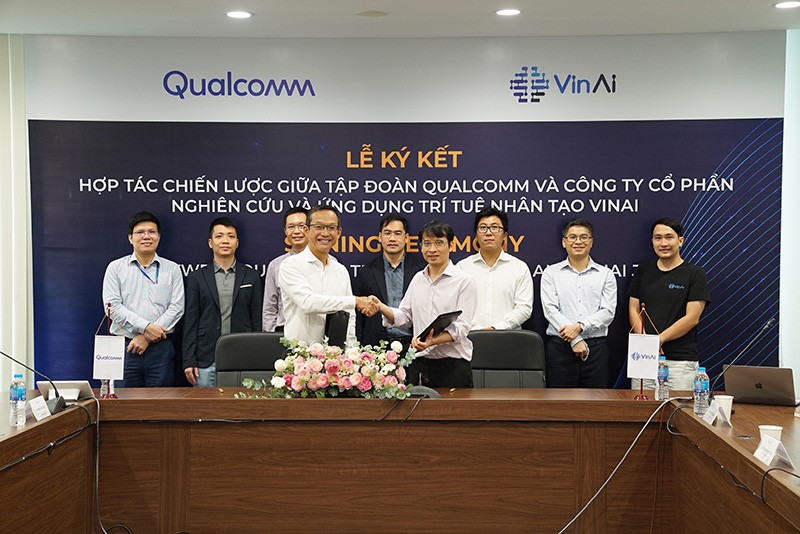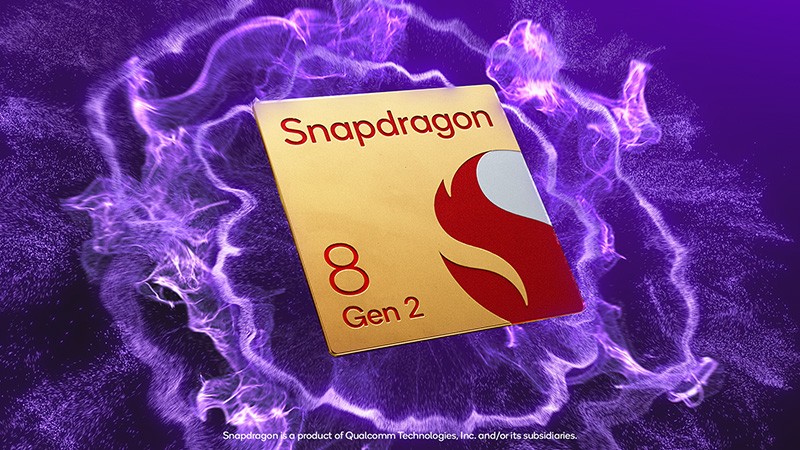Qualcomm leads hybrid AI revolution
Latest
With AI still in its nascent stages, many companies have been investing in learning more about Artificial Intelligence and how to utilize this technology. One of the companies committed to learning and harnessing AI is Qualcomm, as part of the company’s mission to make edge AI ubiquitous and enable intelligent computing everywhere.
 |
| In May 2023, Qualcomm and VinAI officially announced their partnership in developing a low-power AI solution designed for smart cities. |
A rich history of AI R&D
Qualcomm initiated its first research in AI in 2007. The company’s research in spiking neural networks in the following years has allowed Qualcomm to understand better machine learning, which serves as the foundation for the company’s leadership in AI. As early as 2013, Qualcomm launched its research in face detection with deep learning, eventually developing sophisticated facial recognition applications across devices everywhere.
In 2015, the company set up Qualcomm Research in the Netherlands to further its research and development of AI. The same year, the company launched the 1st Gen Qualcomm AI Engine (Qualcomm Snapdragon 820 Mobile platform). Recognizing that there’s much to explore regarding Artificial Intelligence, the company formalized Qualcomm AI Research in 2018.
Since officially launching Qualcomm AI Research, the company has been conducting holistic research and development across the entire spectrum of AI. This meant looking into fundamental research to platform and applied research. This includes Quantum AI, understanding deep generative models, AI for wireless, power management, fingerprint, Voice UI, deep learning for graphics, and much more.
What has further enabled Qualcomm’s leadership in AI research and development is the company’s heritage in low-power processing and connectivity which are both essential for AI. With the company’s rich understanding of these and its commitment to understanding AI, Qualcomm has developed a hybrid AI approach, enabling it to successfully build technologies and solutions that have seen applications in Cloud, IoT, Automotive, and Mobile.
Enabling a world where AI is ubiquitous
Qualcomm has been at the forefront of developing solutions that have enabled AI to be prevalent across mobile and other technologies. While other companies are fully committed to developing new software, Qualcomm’s approach of introducing industry-leading software and hardware allows the company to be in a unique position to scale hybrid AI.
Qualcomm understands the benefits of on-device machine learning processing, enabling more intelligent and powerful performance. On-device machine learning has several benefits, such as faster response time, reduced reliance on cloud processing, and enhanced security, especially for personal data, while being more power-efficient.
Since the introduction of the first Snapdragon Mobile Platform, Qualcomm has been innovating and perfecting its Snapdragon mobile platforms with AI capabilities. Snapdragon is the leading chipset that powers the premium Android experience. Consumers with mobile devices equipped with the latest Snapdragon processors have enjoyed the benefits of on-device and cloud AI working seamlessly together.
The Snapdragon 8 Gen 2 Mobile Platform of Qualcomm Technologies, Inc. is one of the latest chipsets designed to provide unparalleled AI performance with the integration of the Qualcomm AI Engine.
Android devices that come equipped with Snapdragon mobile platforms provide superior processing, which enhances the performance of cameras, the reliability of virtual assistants, the quality of photos and videos, the accuracy of speech recognition, and much more.
In February 2023, Qualcomm demonstrated the superiority of its Snapdragon chipset by having the world’s first on-device demonstration of Stable Diffusion on an Android phone equipped with the Snapdragon 8 Gen 2 Mobile Platform. Stable Diffusion is a text-to-image generative AI model that can provide photorealistic images through text prompts it is provided. What makes the feat of Qualcomm impressive is that Stable Diffusion is primarily run in the cloud. The on-device demonstration conducted by Qualcomm is a testament to the superiority of the processor developed by the company.
 |
| The Snapdragon 8 Gen 2 Mobile Platform of Qualcomm Technologies, Inc. is one of the latest chipsets designed to provide unparalleled AI performance with the integration of the Qualcomm AI Engine. |
Driving AI in Vietnam
Beyond mobile, Qualcomm’s AI solutions span automotive, PC and tablets, IoT, XR, and cloud. The Qualcomm AI stack, unified platform AI software, is designed to help developers optimize and deploy AI models efficiently. Through this solution, different developers can better create other technologies which harness AI.
In recent months, Qualcomm has partnered with different local companies to introduce AI-enabled solutions to the Vietnamese.
In May 2023, Qualcomm and VinAI officially announced their partnership in developing a low-power AI solution for smart cities.
Qualcomm has partnered with VinAI (under the Vingroup) to launch GuardPro, an AI-powered solution designed for real-time monitoring in smart cities to enhance safety and compliance. GuardPro is developed utilizing Qualcomm Cloud AI 100 hardware matched with VinAI’s high-throughput video analytics SDK, which was created using Qualcomm AI Stack tools. One of the first urban areas to deploy GuardPro solutions in Vietnam is the Vinhomes Smart City in Hanoi. Upon a successful pilot, it will be deployed in other urban areas nationwide.
Following this, Qualcomm has also entered into a tripartite agreement with Viettel IDC and VinAI to research, develop, and promote the application of AI solutions. Following the agreement, Viettel IDC will incorporate VinAI’s solutions based on the Qualcomm platforms into its various offerings. Through this, all three companies hope it will help advance the adoption of AI solutions in the country.
These are just some of the initiatives of Qualcomm to make hybrid AI a reality and accelerate the use of AI solutions across the globe beyond mobile. Qualcomm continues to innovate and lead generative AI on-device.
To learn more about Qualcomm and how it enables a more intelligently connected world through AI, visit https://www.qualcomm.com/.
























